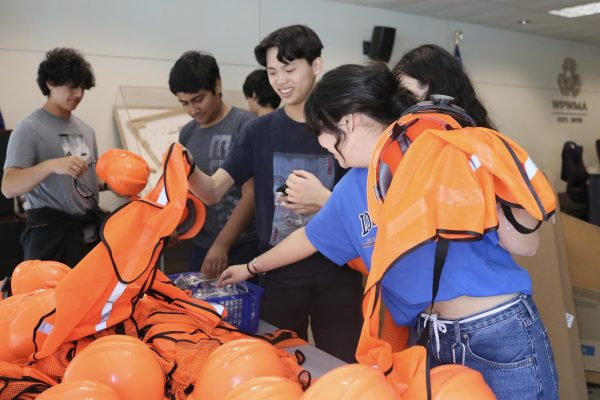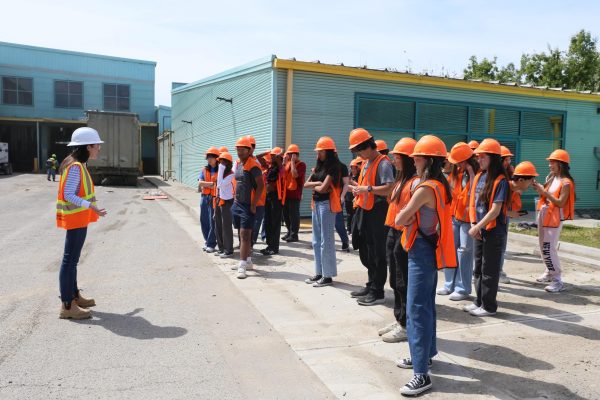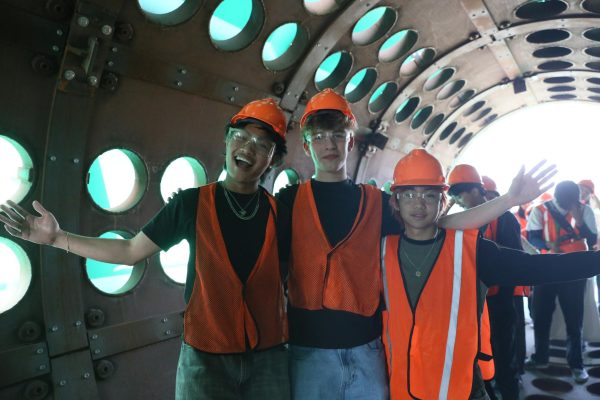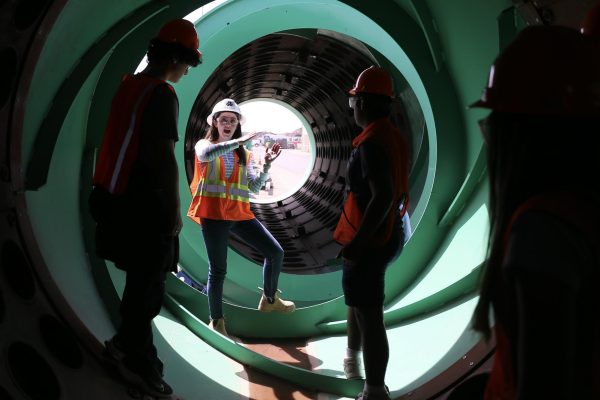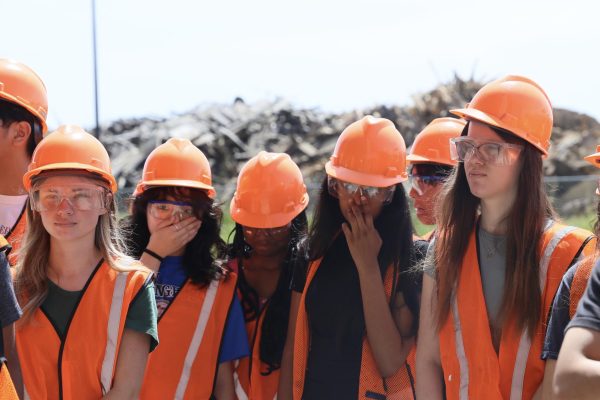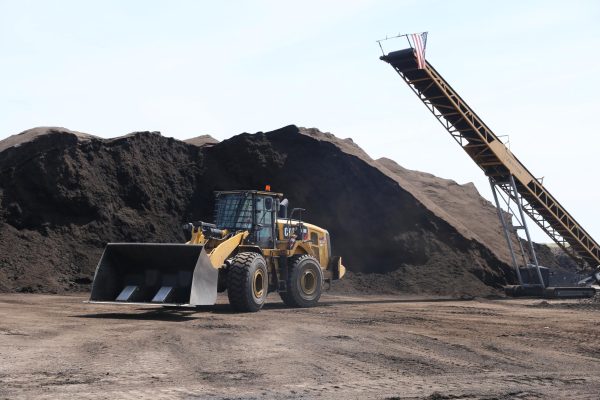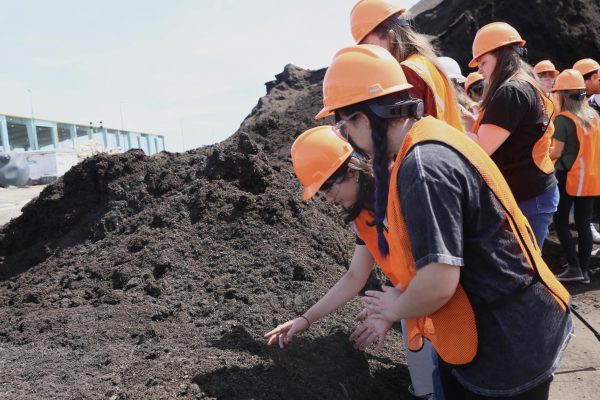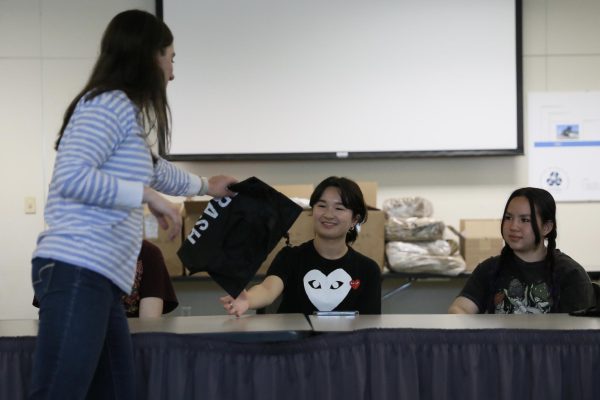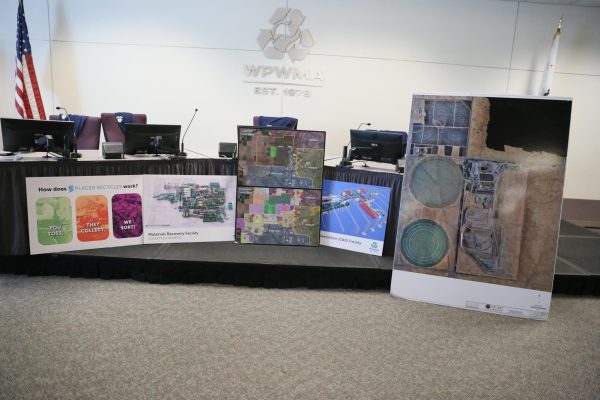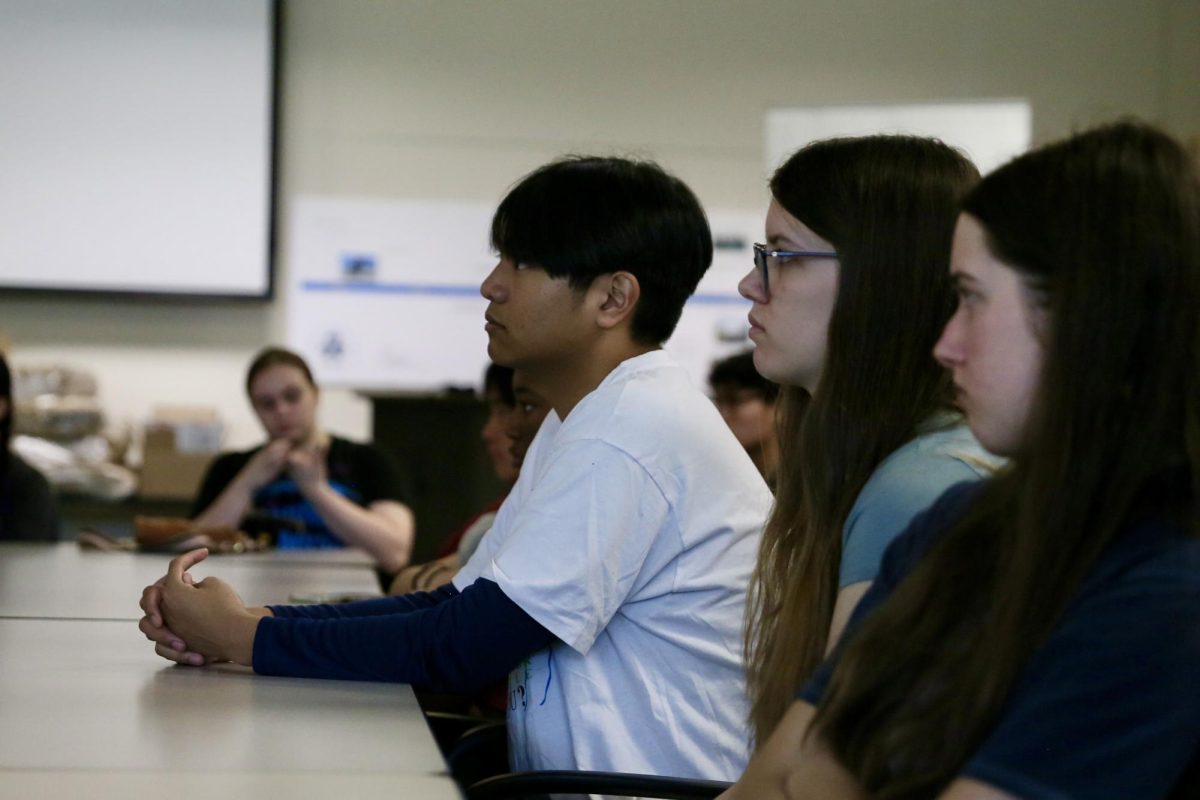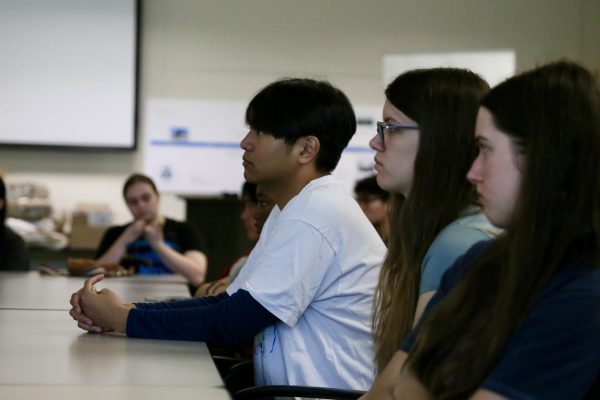
While other AP students sit in classrooms and write down lecture notes, AP Environmental Science students traveled to the Western Placer Waste Management Authority (WPWMA) to experience the smelly combination of compost, construction waste and hot garbage.
Five minutes into third period April 17, students were released from school to attend the trip, and returned at 12:30 p.m.
“I thought the trip was very informational, educational and was a very [fun] trip,” Phyllis Khuyag said. “It was nice to have in our APES class, specifically because I think it’s important to experience going outside and seeing real-life applications to what we’re learning.”
Twenty-seven students attended the trip, while five stayed back at school. The five who stayed took a virtual tour of the WPWMA as a makeup assignment.
“I was taking a test for a class outside of Whitney that morning and I couldn’t make it to school on time to leave for the field trip,” Raghav Kedia said. “It sounds like it was a lot of fun but it wasn’t that bad missing out.”
Located along Fiddyment Road in Roseville, the WPWMA is a waste management organization that brings in over two million pounds of garbage every day. All incoming waste is processed within 48 hours of its arrival at the facility. For over 20 years, the WPWMA has provided tours to the public, averaging two to five tours per week.
“I would say the most important aspect of these tours is that we provide them to as many people as possible and continually strive to make our facility more accessible,” Public Information Assistant Emily Hoffman said. “I think oftentimes ‘seeing is believing’ and it’s an important reminder that here in Placer County we sort through all waste that comes to the facility and don’t just send everything to the landfill.”
Mrs. Amanda Vrudny has taken students on this trip five times, and it matches curriculum taught in APES. For the AP test May 9, students must understand how sanitary landfills operate and the importance of recycling. Due to the proximity of the landfill, it’s become an educational tool for Vrudny.
“I think people remember better when they get to experience it for themselves; it makes it more meaningful as well,” Vrudny said. “Especially with something [like trash] we’re used to throwing away and never seeing again, it makes a pretty big impact.”
Hoffman started the tour by informing students with poster boards about the facility’s buildings, operations and future plans. WPWMA is currently planning for a second sanitary landfill, which will take seven years just to obtain the permit to develop. Hoffman also explained how they process and sort the waste, pulling out certain products like discarded CDs, diapers and paper clips for buyers to purchase and recycle.
“I liked that we get to see hands-on what’s happening,” Vrudny said, “I was a little disappointed that the actual MRF [Material Recovery Facility] isn’t in operation right now — that’s the material recovery part. That’s usually the most interesting part of the tour, seeing the recyclables actually sorted, and we didn’t get to see that this year,” Vrudny said.
Although the class didn’t get to see it, the new MRF will recover over 75% of the organic waste thrown away in residential and commercial garbage bins and compost it so it doesn’t end up in the landfill.
After suiting up in the mandatory hardhats, orange construction vests and protective goggles, Hoffman took the class onto the property. Students saw fork lids crunching, lifting and moving trash, the waste management pond, the Construction & Demolition Facility and even touched finished compost.
“I did not want to touch the compost because I didn’t want my hands touching what used to be other people’s trash,” Khuyag said.
After the tour concluded and the class was back inside, Hoffman did a quick recap and asked five pop quiz questions. Those who answered correctly received a “Trash Talker” tote bag. Everyone in the class was able to choose which type of colored “Trash Talker” button they wanted to take as a souvenir.
Khuyag said, “I thought the most interesting thing was the part where [Hoffman] was talking about how that facility is very highly ranked in sorting out recyclables and waste. My favorite part of the trip was wearing the hardhat, vests and goggles. My least favorite part was the smell.”
by EMERSON KIBBY & CARSON NICHOLS
